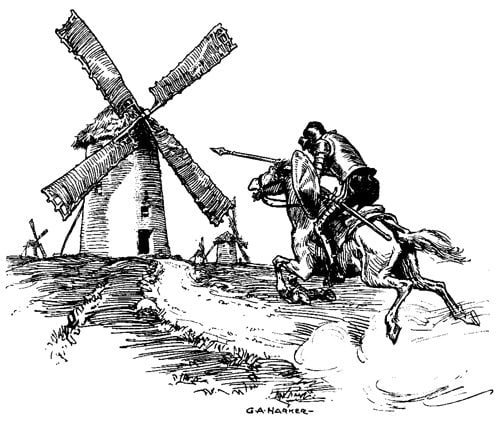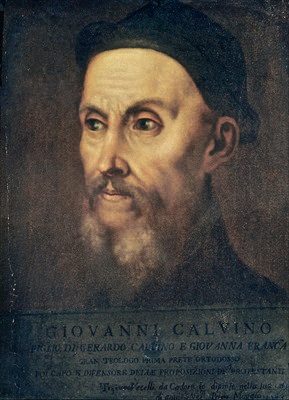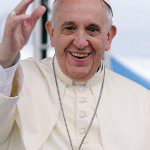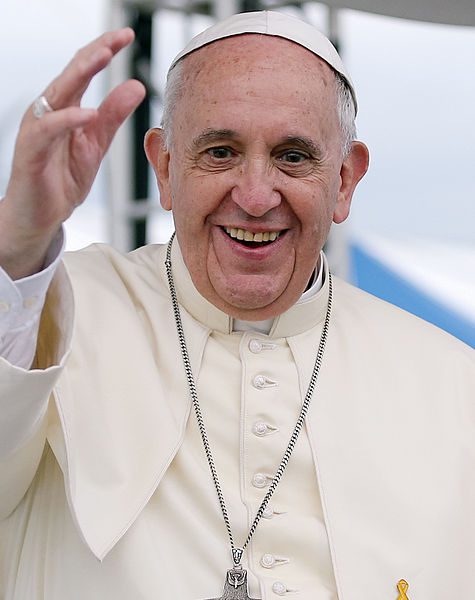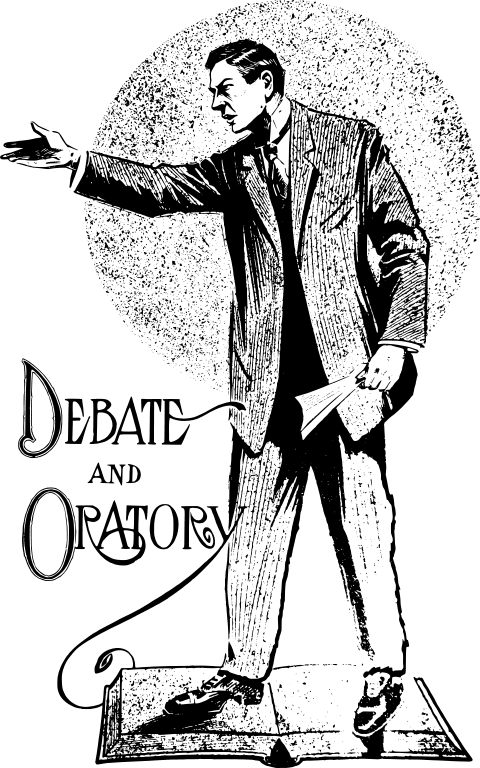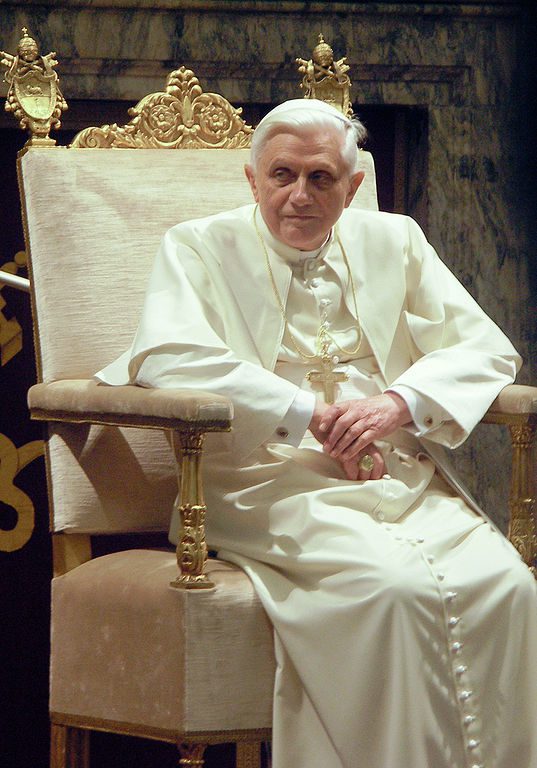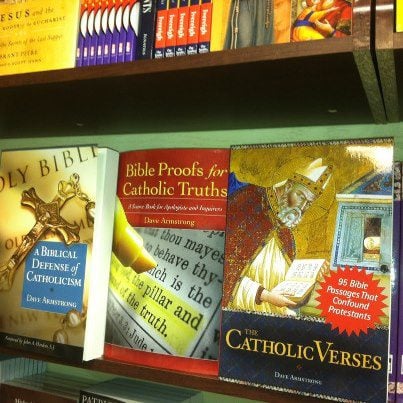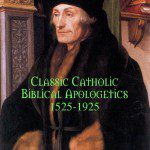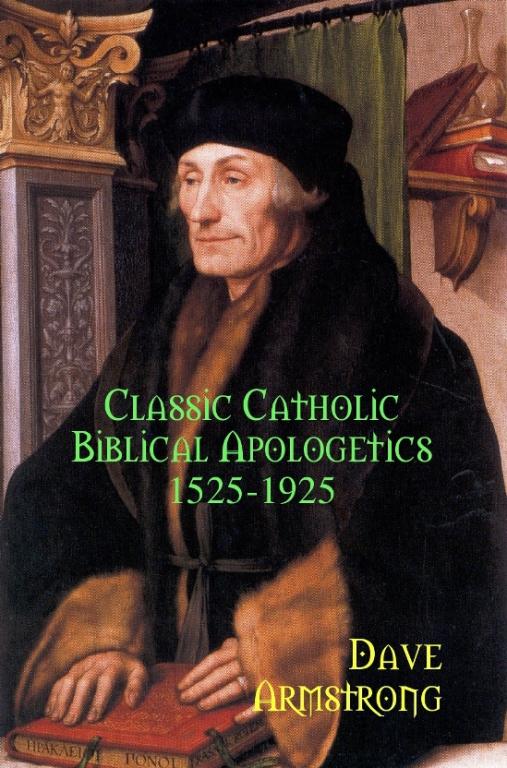Photograph by Andrys [
Pixabay / public domain]
I struggled for a bit with my faith, questioning Catholicism, . . . along the way, I found your site, fell into it, read I don’t know how much of your work, all of it, edifying, all of it, opening my eyes time and again. You turned me onto Chesterton! I wonder if you know how much your work . . . has influenced others – and in a very positive way…. So, my friend, thanks very much for your work. I do feel from your site that I know you in some way . . . funny, I feel almost “big sisterly” towards you! God is good!
Catholic laywoman and missionary, 4-24-02
I . . . just discovered your website. Honestly, you guys – Scott, Marcus, etc., etc. – are the best thing that’s happened to the Church in a very long time – here just in time to support those who will look and listen during this time of trial. God is going to purify His Church, and He’s using the infuriating, godless secular media to do it – no angel of Light, but a handy instrument to bring us to our knees. Thank You, Jesus! God bless the work!
Catholic Franciscan Friar, 5-30-02
I have just visited your website after seeing your article in Envoy. Thanks for what you are doing for the Catholic Faith. Converts seem to have more ‘fire’ in them . . . The Pope said that one day there will be a new springtime for the Church and – I feel – it will be partly due to yourself and people like you.
I am reading your first electronic book A Biblical Defense of Catholicism and I find it very informative and helpful, answering some mental queries. It seems to me that it is the converts who defend the Church with a vengeance . . . just an encouragement for you and your work. The details are very well researched.
Catholic priest, 6-7-02 and 6-16-02
I really want to thank you for helping bring me back to the Church. I had been away from the Church for 19 years . . . During that time I was involved in the New Age, Buddhism, the Episcopalian church, and even the occult . . . In March 2001 I started frequenting your site and read many of the articles. Shortly after that I went to confession and started changing my life. I am now a practicing Catholic, following all the Catholic teachings, including Natural Family Planning.
Catholic laywoman and “revert”, 7-29-02
I love all your writings. Your website is awesome . . . I am a cradle Catholic; never left the Church, but lived as a cafeteria Catholic for years. I am now back on track. Thanks for all you have done for me personally.
Catholic layman and physician, 8-12-02
Just wanted to take a second to thank you for the tremendous resource your website has provided for me in my attempts to evangelize the Catholic faith. You never fail to have the answers I’m looking for. Also, I consider your “My Respect for Protestants” a model [for] how we (as Christians) should be conducting ourselves towards each other, as apologetics so frequently degrade into stone throwing.
Catholic layman, 9-15-02
You may be interested to know that on 1st of December this year I intend (God willing) to be received into the Catholic Church ( technically speaking I intend to be reconciled to the Catholic Church, as I am a Protestant Christian ) This is due in no small part to an extensive perusal of your site!
Catholic convert, 11-19-02
I ran across your website while doing some research for our RCIA class this morning before Mass. I am teaching RCIA classes on Marian Doctrine and The Communion of Saints this month. I am anxious to receive your materials! [she ordered all eight of my books in Microsoft Word 97 format]
Catholic laywoman, 12-29-02
If there is a site that deserves the title of “mother of all
voluntary sites” it would have to be the incredible site
that has been put together by Dave Armstrong in Michigan.
Armstrong seems to have been around for as long as any of us
have been searching the internet for resources on Catholicism.
He has assembled over 1675 pages consuming some 4Mb of text
on just about every single Catholic thinker and question you can
name. Initially it was an entirely “love” commitment to the rest of
humanity but since December 2001 he’s put his money, or more
likely his faith, where his mouth is and he now does this full-time
from his home and would seem to be almost entirely dependent
on the beneficence of God sending a few donations his way and a
bit of casual work to make it happen. He also supports a wife and
young family. This is commitment with a big “C”. It is also
Catholicism with a big “C” as well but don’t let that get in your
way. Armstrong describes himself as a “Catholic Apologist,
Evangelist and Author”. This reviewer has not been convinced by
Dave, or anyone else, that tub-thumping evangelism and
apologetics is going to “re-evangelise” the Western world but
that is not to diminish the incredible contribution this man has
made for Catholics, indeed Christians, of all political and
theological persuasions by the resource that he has assembled in
the lounge-room of his own home. One suspects the tribute
ought to be paid to his wife as much as to Dave for what she
must have to put up with in a man as dedicated as this. If you
want to be “blown away” looking at the commitment of an
ordinary bloke who really does live his beliefs make sure you visit
this website at least once in your lifetime. It can be virtually
guaranteed you will learn at least one thing about your faith that
you never knew before.
Website Review by Brian Coyne for CathNews – A service of Church Resources on 6 January 2003.
I and my wife entered the Catholic Church a year ago, and your website was part of that. It was particularly useful after we announced our decision to my wife’s staunchly Protestant family.
Catholic layman, 1-22-03
I just wanted to write you to tell you what a help your web-site has been to me on my journey of faith . . . I thought I had already arrived at the truth in the Eastern Orthodox Church. I was Chrismated 8 years ago at eleven years of age, and have been a devout follower ever since . . . One of the issues that prompted my questioning was contraception; reading your section on this issue, and few other moral issues, I realized this issue in particular was no minor, “just-between-you-and-the-priest”, kind of thing. What was wrong for roughly two thousand years, is equally wrong today . . . Your web-site helped me to learn the TRUTH of the Catholic faith, and dispel any falsehoods I held concerning it, particularly in regards to the Holy Father, (God bless him!) . . . I just wanted to thank you for all the work you are doing on behalf of the Church, and let you know that God used you to help me see.
Former Orthodox, now Catholic laywoman, 4-26-03
I am a recent convert to Catholicism from Protestantism (just last week at the Easter Vigil, actually) and I wanted to thank you. One of the first things I read when I began my investigation into the Catholic faith back in August of 2002 was your article 150 Reasons Why I am a Catholic, and I found it very intriguing and inspiring. It definitely encouraged me to read more articles and books about Catholicism. So, once again, I wanted to say thank you, and I look forward to reading more of your work in the future.
Former Protestant, now Catholic layman, 4-27-03
I have to tell you, I do so admire the work you do. I can assure you, your work is touching thousands upon thousands of lives – and has been for years. Anyone – without exception – who’s even marginally involved in apologetics uses your website extensively. At least that’s been my experience. And the [first] two books of yours I’ve read are exquisitely reasoned and deeply insightful. Whats’ even more impressive is that your love for this glorious faith is palpable. I can honestly say there is no one involved in evangelism and apologetics whom I admire more than you. And I don’t say that lightly. I know our gracious Lord must hold you in great esteem as one of his most loyal and determined children – otherwise your cross would be less weighty. We should all be doing more to support good and necessary work like yours – yours in particular. And again, thanks for your wonderful work – and for not giving up. What you do is so necessary and so valuable.
Catholic layman, 5-16-03
I was brought up within the Catholic faith but at 17 I left the Catholic Church to join Protestant churches. I came back to the Catholic Church in 2000, fully convinced of its Truth and of its historicity. I left the Catholic Church for a full 15 years before coming back to it. When I decided to join Protestant churches at 17, I was almost totally ignorant of the faith of my upbringing.
. . . There was a point where I was so fundamentalist (Protestant evangelical) that I was totally anti-Catholic without even knowing why! (Like many ex-Catholics, unfortunately) I met and married my husband as a Protestant and both of us were even ordained pastors in one of the Protestant churches. My husband was brought up Catholic as well.
My husband fell ill during our ministry and we had to leave. After many trials and tribulations and disappointments and mental tiredness, my husband and I really didn’t go to church anymore. We had lost interest completely and for a few years we went to church very rarely. During those times, I lost my mother to cancer and this really got me thinking.
. . . I started becoming hungry to find out about the Catholic Church. I had the Internet at the time, so I went in the search engine and typed ‘Catholic Church’ and came upon a most fabulous and exhaustive website on the Catholic faith Biblical Evidence for Catholicsm! It answered all my questions! I was soooo happy while discovering the beauty and richness of the Catholic faith I would cry while reading the hundreds of articles!!!
Then I went to Mass one Sunday morning (on Palm Sunday 2000) after 15 years’ absence. I was just soooo moved during Mass, it was incredible. I cried during the whole Mass, . . . My husband became curious of the Catholic faith and would ask me what I had read on the wonderful website. Two months after I had started going to Mass, he joined me. The Holy Spirit was working in both of us at the same time!
I think I’ve said enough for now but I can tell you that TV and the Internet have been useful tools to bring me back to the Catholic Church! So Pope John Paul II’s new evangelism tactics are very powerful! (and inspired by the Holy Spirit!)
Catholic convert laywoman, posted 7-20-03 on the Catholic Online Internet Discussion Board, See: http://forum.catholic.org/viewtopic.php?t=8778&highlight;
I used your site a great deal in converting to the church, and I thank you from the bottom of my heart for all your work. There is a real mine of information here, and many people owe you a debt for that.
Catholic convert, 8-13-03
About two-and-a-half years ago, while I was still in college, I first visited your site out of curiosity concerning how in the world Catholics defend their “unbiblical” doctrines. Because of a random search I came to your 150 Reasons Why I’m A Catholic page and needless to say I was shocked. The way you defended Catholic doctrine in short logical points with scriptural support sent me into a theological tailspin. I closed the browser quickly, but I was still left with those Bible verses and kept wondering how in the world I had missed the verses you pointed out. Well, after about two years of study, graduation, a move to Northern Michigan and lots of painful discoveries of inadequate Protestant interpretations and counter-arguments, I finally decided to join the Catholic Church. In fact, I will be starting RCIA next week thanks in large part to your web site (and, of course, God’s grace). Once again thank you very much.
Former Protestant, soon-to-be-Catholic layman, 8-28-03
Your gift of Catholic apologetics has blessed me in more ways than I could ever express. More recently God has put several people in my life who have been misinformed about the Church and I felt completely lost and overwhelmed as I saw them somewhat open and looking to me for answers. My boyfriend, who is probably your biggest “fan” then strongly recommended I check out your websites where I now feel equipped to reasearch, study, learn (for myself) and defend my faith when given the great privilege.
Catholic laywoman, 9-4-03
It occurred to me that I needed to stop and just tell you thank you, thank you, thank you, and God bless you, God bless you, God bless you – for your service to the Body of Christ. I’ve said before that I owe my conversion in large part to your website. You’ve blessed me and my family so much. I only wish I could offer you something more besides kind words and prayers.
Catholic layman and convert (from Worldwide Church of God), 9-9-03
I just wanted to say thank you for the work you do. I wish I had the money to give to you to support your work, but we starving students are pressed as is. I’ve found your first two books to be extremely useful in my own apologetic endeavours, and they have been among some of the most worthwhile purchases I’ve made in recent memory. I pray that God gives you the strength to keep up such good work. It has been a great resource and an inspiration. I look forward to purchasing your other books when they become available in print. Thank you again, so much.
Catholic layman, 9-22-03
It is impossible to tell you how much I appreciate your labor.
Catholic layman, 9-26-03
I am so incredibly thankful to see someone who is not afraid to stick it those who would believe that the Roman Catholic Church is not a sound institution. I myself am studying for the Catholic Priesthood, and have very much enjoyed your writings about pre-Lutheran vernacular Bibles – it’s a comfort to know that someone has taken the time to do the research instead of just perpetuating the myth that Martin Luther was the first to write a Bible in German.
Catholic seminarian, 10-7-03
I would like to congratulate you for a very informative website. The list of Catholic and Christian resources you have included here is exhaustive and if I may add, awesome. I have referred to it on many occasions in the past . . . I find it to be an invaluable guide and I am sure that many others also do. I truly appreciate the ideas and work you have put into this web site.
Catholic layman, 10-13-03
Thank you for your site; it has been a great help to me in coming into the True Faith.
Catholic layman, 10-13-03
While reading a review on Fr. John Hardon’s Lifetime Reading Plan I hot-linked over to a Fr. Hardon website. From there I linked over to your website. I could not let this day pass away without telling you how deeply impressed I am with your scholarship and your technical proficiency. It is the finest website of its type that I have ever seen. It is marked in my Favorites and will be used a constant resource from now on. Thank you so much for your work on this.
Catholic layman, 11-5-03
I wanted to tell you that I am now a Catholic, as of a Nov 11th. It mostly due, in order of impact, to 1) your amazing website, 2) the Coming Home Network, and 3) Scott Hahn’s conversion story. Thank you so much for all you do. Your wonderful website had just a huge influence on me during my journey to the Church, which lasted 14 months. I really can’t thank you enough for your apostolate. God is doing great works through you. Thanks again for your website. I absolutely love it, and tell everyone about it. Your website helped to make a Catholic out of me, and for that I will be forever grateful to you.
Catholic convert laywoman, 11-17-03
From December 2002:
Your website, however, along with CatholicAnswers.net, have been extremely helpful, and I thank you for that. And since your website has been so useful so far, I’ve decided to go ahead and get your books in word document format . . . for my own searching as well as to share information with my other Christian (some of whom are very anti-Catholic) and non-Christian friends . . . I just want to let you know that you are doing an amazing job and I look forward to seeing more of the work you do to the glory of the Lord. God bless and grace be with you.
On April 19 2003 during the Easter Vigil Mass at St. Thomas More University Parish in Bowling Green, Ohio I was received into the Catholic Church!!! Thanks again so much for letting God use you to help me along the way to where I am now! Your website, your books, and your links and references were probably the most significant resources in pointing me to the truths of the Catholic Church. I’ve gotta tell you, I never would have imagined a year ago having as amazing an experience as I am being a Catholic Christian. There are so many incredible things that God has revealed to me through the His true Church, and there’s more and more that keeps coming. The Church is so, so rich, of course because God is so, so rich! I’d tell you my wonderful experience in detail, but that would make this email much, much longer than it’s already going to be.
In closing, I just want to thank you again for the work you are doing to the glory of God. He has used it to make a huge impact on my life, and countless others I’m sure. Since conversion, I’ve tried to make the most of your website and resources, sharing them whenever I can with my new Catholic friends, as well as my Protestant and non-Christian friends. Thanks again Dave for everything that you’ve done! Praise the Lord Jesus Christ!!!
20-year-old Catholic convert layman, 12-2-03
Last week I saw the The Catholic Answer Bible for the first time. It was fantastic! What a great idea! Thank you for your work and your witness. I have read Surprised by Truth about six times and have given away too many copies to count. Surprised was pivotal in my turning away from “cafeteria Catholicism.” Again, thank you for your witness.
Catholic laywoman, 12-4-03
I have greatly enjoyed reading your website when I have time. It is simply unparalleled on the web. My wife and I were received in 2002 into the Catholic Church (formerly Southern Baptist), and your writings (including the Surprised by Truth testimony) have been a great inspiration to me, and VERY educational. Although I am not able to contribute monetarily at this moment, (I hope to in the future) I will commit to praying regularly for your apostolate. The email updates will be a great reminder for me to do that.
Catholic convert layman, 12-10-03
I highly appreciate your great efforts, amazing scholarship and enthusiasm to defend our Catholic faith against heresies. [You have a] keen and logical mind . . .
Catholic layman and professor of religious studies in the Philippines, 12-12-03
Thank you so much for your website, as I recently had to make a good deal of use of two of your articles Dialogue: Should the Pope Kiss The Koran?, and Are All Catholic Laymen and Non-Theologians Qualified to Freely and Frequently Criticize the Pope’s Opinions and Prudential Judgment?. Recently though, in speaking with my friends, I had come to notice an underlying tone of traditionalism in our conversations. That’s where you came in. Mention was made of the “Koran” incident, and some of these people were quite upset. I assured my friends that I firmly trusted the Holy Father and that if he did do such a thing – then I completely trusted his reasons for doing what he did. I was able to find your two articles that I had mentioned above, and WOW – did you explain things wonderfully! I immediately e-mailed the links to these articles on to my friends, anxiously anticipating their approval. Well, to say the least – that’s not what happened. Instead of debating them myself, I said that every one of their questions were clearly addressed and answered in those two articles. With this, some of these people became curt, challenging and extremely defensive. I was asked to no longer address them on these issues (ever), and to stop mentioning your name!
Mr. Armstrong, thank you for having taken the time to put up your website, and to including those articles within. I agreed vehemently with every single point that you made. Every one! Your reasoning is clear, concise and totally in line with the teachings of Mother Church. Thanks again for not making me feel like I was all alone in desiring to be lovingly obedient to the Holy Father. Call me deaf, dumb and blind, but for me – there’s no other way. In the near future, I will be offering whatever little bit that I can towards your support. You obviously deserve it!
Catholic layman, 1-7-04
Dave’s Biblical Defense of Catholicism web site and his friendship were among the factors that helped my inquiry and my eventual Tiber crossing. I can testify to his friendship with non-Catholic Christians personally; we built a good friendship when I was Anglican. He has always treated me with respect, never was he arrogant, triumphalistic or anything like that.
Catholic layman and convert from Anglicanism, 1-30-04
(writing on Patrick Madrid’s Envoy blog)
I just want to tell you how much I appreciate your site and your hard work. I just read all the attacks on your blog. You must be doing something right to touch so many nerves. Your website has been invaluable to my journey into the Church. I am to be received this April. Your website was the first Catholic apologetics material I ever read. Without sounding like I’m kissing up, thank you for being so detailed and deep. Many other apologists are too simplistic to get to the roots. You get to the root of error and axe it. Continue in your humble spirit and love for Christ and love for your separated brethren, it is so refreshing. I will support you by buying books and probably donations down the road.
Catholic layman and convert, 2-11-04
I wanted to send a short letter of thanks for the work that you do. I just became a Catholic at Easter Vigil, after growing up as a Pentecostal in the Pentecostal Assemblies of Canada, and much of my decision, and the information for that decision, was from your website. So thank you for, as you say, taking the stumbling blocks out of my way.
Catholic layman and convert, 4-18-04
Thanks for your great work. Your website was instrumental in my family’s conversion to the Church. We have begun sending your apostolate a monthly check.
Catholic layman and convert, 4-22-04
Your writing has helped me in many ways, more than I can count. Part of my own work here in my parish is to help people connect more fully with their Catholic faith through a renewal program and through RCIA. The information on your site has been of immeasurable value in those efforts. I am so encouraged when I see people embrace their faith more fully, and get excited about orthodox Catholicism. (GKC was right on the money!) You have helped me help them through your website and blog. If your books provide a similar measure of help (and I’m sure they will) I will gladly recommend them to others. It is a LOT of information! Sometimes your work is frustrating, I know. Please take this as a note of encouragement, for what it’s worth. You ARE making a difference.
Catholic layman, 4-26-04
Thanks for all of the good work you have done! I have found your website extremely helpful: both your own personal writings (which have taught me, not simply great apologetics arguments, but even better, how to conduct dialogues in the most charitable way possible), as well as the extensive links on your website . . . I have made your website my homepage. I wish I could be a monthly contributor to help you out; however, unfortunately, I am only able to make a one-time donation.
Catholic layman, 5-11-04
The following unsolicited comments were from 14 different people in a single thread on the Catholic Answers Forums (Discussion Boards); dated June 22-23, 2004:
“Has anyone ever heard of Dave Armstrong?”
He is a convert (reconciled?) to Catholicism and I found a brochure written by him at church this week on the 10 questions most asked of Catholics. His web site has 150 reasons why he is Catholic. Pretty good stuff.
“javelin35”
I don’t know anything about him, but I have visited his site. I agree that he has some great information, particularly for protestants converting, or thinking of converting, to Catholicism. He seems to have a pretty well formed faith. I wish that I was catechised as well as he seems to have been…
“OhioBob”
I learned a lot from his website.
“beng”
Yes a very nice guy . . . His website is chock full of helpful info!
“St Veronica”
I’ve learned a lot from his website. He’s very good in refuting non-Catholics; specially anti-Catholics like James White . . .
“ferdie”
Dave is Awesome! Super Links Page is a must!
“john654”
Dave Armstrong has an excellent website and has written two books that are very well done . . . I would recommend his books for anyone wanting to learn more about the faith. He has a good chapter on the Primacy of Peter.
MilesJesu
Dave Armstrong’s site is one of the best I have found on the internet. His site began my conversion process nine months ago, and here I am a Catholic. He uses a lot of Socratic logic in his arguments, and simply and clearly shows how sola scriptura is endlessly arbitrary and the need for ecclesial authority among many other discussions. His blog is also very good, but a little too much on James White at times. I would recommend this site to anyone interested in the Catholic Church.
“OfTheCross”
Dave Armstrong’s website was integral to my becoming RC. After attending a Catholic retreat with some of my Baptist friends, and attending a mass at a monastery, I became very interested in the Catholic Faith. I used his website to study things like Marian doctrines and the Eucharist – my main issues I had to deal with before attending RCIA. I began attending RCIA after studying the Catholic faith for two years. When I was beginning to attend RCIA, I told one of my dear Baptist friends. She cried, I cried, and she told me that when I was studying the Catholic faith to stick with the Bible. Dave helped me do just that with his website, and now I am a Catholic today!! If you haven’t checked his website – please do so!!
“journey”
Dave’s website has also helped me a great deal. His articles answered many of my questions and were instrumental in my conversion process from the Evangelical church. His Catholic knowledge, reason and logic are impeccable. A lot of converts like me have a great deal of admiration for him because he has taken so much time and made such a wonderful effort to spread the Truth of the Catholic Church. Many thanks and kudos Dave!!
“vangrosh”
A FIRST CLASS APOLOGIST!!!
“southernrich”
Here’s another vote for Dave Armstrong. Dave Armstrong’s award-winning website is the best on the Net! If all Catholics could know as much as Armstrong, and explain it as well as he does, not one would ever leave the Church and we could convert the world.
“Katholikos”
His books are in-depth and very readable. His website has many excellent articles.
Jeff Miller
Yes, Dave is awesome! I highly recommend his site and his books!
Quisp
I respect so much of what you do. Hope to meet you in person some day.
Dr. Ray Guarendi, nationally-known author, family expert, and lecturer, 8-27-04
Here is a donation that I’ve wanted to make for some time! Thank you for your wonderful work. I cannot express what an incredible source your website has been for me and my family. We are huge fans. My husband is a convert (the brother of a Baptist minister) and I am a cradle Catholic. Your work has been so essential to our family’s dometsic church! We truly appreciate the countless hours of work you spend defending the faith. Please keep up the good work!
Catholic laywoman, 4-18-05
Thanks so much for the tremendous work you do for the Church. You played a huge role in my leaving sedevacantism and extreme traditionalism. I was recommended to you by both Pete Vere and Jesse Romero.
Catholic layman, 5-2-05
Two threads on my blog (first | second), originally having to do with the average age of readers, provided an opportunity for commenters to say how they found my blog or website, and (as it turned out) how their conversion or recommitment to Catholicism was aided by my writings.
Various Catholics, May 2005
[Opinions on] Apologist Dave Armstrong? (thread on the Catholic Answers Apologetics Forum)
Various Catholics, June 2005
I am amazed at your output. It is due to converts like yourself and many others in the USA that I can realise even more fully that our Catholic Faith is eminently defensible and that we can hold our own in the intellectual world as well as be a tremendous consolation and help to those who are at the other end of the scale, namely those with a simple faith.
An Australian Catholic priest, 8-10-05
I think you are a tremendous apologist for our Faith. In fact, I find your knowledge to be encyclopedic. What a tremendous grace you have been given. I have remembered you several times at Mass. God bless you and your family.
A Catholic priest from Vermont, 11-22-05
Thank you so much for your Christian faithfulness. Having been raised in a protestant family and seeking God’s Will for me, I have been led to the Catholic Church. Your testimony is helping me and your writing is providing much reassurance. I wanted to say thank you for all your work, and may God continue to bless you richly.
Catholic layman, 12-18-05
I am a Catholic living with a Baptist husband and inlaws. I have had a terrible time in the last few years since I started going back to Mass . . . My kids are excited and are happily anticipating their first communion this spring and I am happy for them since this is a huge step. Anyhow, I’m so glad I found you. I will be ordering some books. Thank you so much again. I can’t wait until I have the tools to defend my faith and myself.
Catholic laywoman, 12-29-05
I don’t think it is an exaggeration to say that Biblical Evidence for Catholicism is, or was, the best apologetics site on the web. That is, measured not by the regard other apologists have for it but by its evangelistic impact.
The apologetical material is excellent and contains both original work and the work of others . . . Not only does Mr. Armstrong cover a vast number of topics, all of the material is well-written and interesting . . . valuable resources . . . Very large collection of good Catholic links . . . Wide range of theological topics covered . . .
Todd Pellman, 1-16-06
[he wrote the latest (positive, except for navigational criticisms) review of my blog at the Catholic Culture site (2nd portion above is from the review) ]
[We] sent out our first check for monthly support to your ministry yesterday. We intended to begin sending regular support awhile back . . . I’m sure there are others like us who likewise have good intentions but the distractions and the business of life keep them from following through. The regular updates are really good reminders for those on your list of how much your work has impacted their journey. There’s no better site for them to refer friends and family to when discussing the Catholic faith. I’m glad you include an update of the ministry’s financial situation. The updates are also helpful to remind us to keep your family covered in prayer. Thank you again for your work!
Catholic laywoman (revert), 1-19-06
I am just beginning my reading of your writings, but they seem to be exactly what I was looking for. Keep up the good work!
Catholic (?) layman, 1-22-06
I began doing research. And I ended up where I thought I’d never end up in a million years – I decided today to become a full-fledged Catholic. And your apologetics had a lot to do with this. Thanks so much for enlightening me. I’m pleasantly surprised that God’s grace has led me to the true church. I’m truly indebted to you.
Catholic laywoman (convert), 1-23-06
We are so grateful for your ministry and how the Lord has used the giftings He has given you to change our lives forever. We are now passing on the fruits of your work to our parish.
Catholic couple (convert and revert), 1-06
Thank you for your fine work on your websites. It is a blessing to the Church that there are souls like yourself that care enough to invest their lives in building His Kingdom.
Catholic layman, 2-1-06
Thank you so much for all your work. With your help, careful, prayerful, consideration of all the facts, and a whole lot of Grace, my wife and I will be going through the Rite of Election this coming March 5. Thanks again, and may God continue to bless you, your family, and your work.
Catholic layman (convert), 2-2-06
I have finally made the announcement publicly that my family and I have left Protestantism and are Catholic. Your ministry was (and is) instrumental in our growth in faith. Thank you.
Catholic layman (convert), 2-3-06
I just wanted to thank you for your work. I will be entering the Catholic Church this Easter Vigil (from a Protestant background.)
Catholic laywoman (convert), 3-6-06
I’m a sponsor in my parish’s RCIA program and the group has gotten into some pretty heated debates on Catholic teaching. I always refer folks to your blog and library of articles to read for themselves how Catholics defend the many myths of our faith.
Thanks for being such a great reference source. It is also nice to know that this is not a hostile website that I’m referring friends to. They are able to see that charity is possible even if they disagree with the Catholic position.
Thank YOU for a wonderful teaching tool for the faithful and perhaps soon to be faithful!!
Catholic laywoman, 3-8-06
I think your stuff is great; I’ve read A Biblical Defense of Catholicism, and it’s in the process of converting my Baptist girlfriend as we speak! Thanks so much for what you do.
Catholic layman, 3-10-06
It would be a great honor to have you attend my Ordination Mass. Your witness of the Catholic faith was an important part of my conversion. I will continue to thank God for the Spiritual direction you gave to me, and to pray that your ministry of apologetics will reach many inquiring souls.
George A Burns, Catholic priest (former Anglican priest), 3-19-06
I’m just a big fan of yours. I have many of your books. They have helped me return to the Church. Great stuff!
Catholic layman (“revert”), 5-5-06
Thanks for the [electronic] books. I am really looking forward to reading them. I wanted to let you know that your website was very helpful to me in my journey to the church. I was received into the church last month after five years of intense study and prayer. I was an evangelical campus minister before resigning that position due to my increasing Catholic convictions.
Catholic layman (convert), 5-7-06
I am writing to thank you for all of your hard work. Your articles have played a very important role in my recent conversion from Reformed Presbyterian to Catholic. I was received into the Church this past week . . . My e-mail dialogues with my pastor resulted in me being more convinced of the Catholic positions -and all of these exchanges were sent to the elders and other members of the church . . . Please, keep up the great work. It is probably hard for you to imagine just how important your role is in the Church.
Sincerely and with gratitude, [name]
Catholic layman (convert), 5-12-06
I recently was received into full communion with the Catholic Church after being an evangelical Protestant all my life, and your blog and apologetics writings were essential to me during the period in which I was examining the Church’s teachings. Your site, more than any other resource, had clear, understandable defenses for Catholic doctrine and practices. In particular, you deserve the credit for my ultimate decision to join the Catholic Church rather than the Orthodox Church.
Catholic layman (convert), 6-26-06
This brief note is just to let you know that my wife and myself do appreciate A LOT your apologetics ministry, and we pray for you and your family. It is very clear that many times you have to cover yourself with supernatural grace to be able to deal with the unfortunate affairs that explode in the net. Just know that many, many people really love you and no matter what we stand by your side. God always bless you.
Catholic couple, 8-10-06
Very nice work. First time seeing your work. I am a Catholic and proud of it. I found your information to further edify my faith. Thanks for the info.
Catholic laywoman, 8-24-06
Keep up the good work! I was a campus minister for eight years before being received into the Church in April. Your website had a big influence in my coming to see the truth of the Catholic Church. May our gracious God continue to bless your apostolate.
Catholic layman (convert), 9-2-06
I love your books, love your site, love everything you do. God bless you in your work. I’m very grateful for all you’ve done, and for all you make available. If someone pitches a hard question at me, I go first to your site. Then I send the questioner directly to the page that best answers the question. I know it’s going to be on your site. I pray your tribe may prosper.
Mike Aquilina, Catholic apologist; author of The Mass of the Early Christians and The Fathers of the Church: An Introduction to the First Christian Teachers, 9-4-06
I’m a big fan of yours. Keep up the wonderful work.
Catholic layman (convert), 9-5-06
I am currently going to RCIA and renewing my faith in the Catholic Church. I was raised Catholic but have been away for more years than I care to admit. I came across your website in the process of doing some research on questions I had and it has truly been a blessing. I now spend each day eating lunch at my desk just so I can visit your website and learn more about the faith I choose. And I am happy to say, thanks to God’s direction toward you to help me, it becomes stronger each day. I just wanted to thank you for all your work.
Catholic layman (“revert”), 9-20-06
Your apologetics ministry has been extremely influential to me over the past three years or so. Your irenic presentation coupled with your voluminous knowledge played no small part in my decision to convert to Catholicism from my former strongly Calvinist beliefs. Your works have helped me to better articulate the glorious truths of our holy Catholic faith.
Catholic layman (convert), 9-21-06
God bless you and your ministry. It was invaluable in helping me start an apologetics program at [my church].
Catholic layman 10-7-06
I’ve benefited greatly from many of your materials. You’ve done a great job of reclaiming the Scriptures as evidence for Catholicism. I’d be very glad to do what I can to contribute to your efforts. Please let me know where you think I might be of most use.
Dr. Robert C. Koons, Professor of Philosophy and Convert from Lutheranism, 5-23-07
I just want you to know how much your website has helped me understand the Catholic faith! I was Protestant, Pentecostal to be exact, so the transition into the CC was major!! Your biblical proofs have helped ground me in my faith. Anyways, thanks again for what you’re doing! Please continue to keep up the good work Dave!!
Catholic laywoman, 5-5-08
Thank you so much for your website. I’ve been using it quite a bit lately in a discussion I’m having with Protestants. I also downloaded your books. They’re great and an invaluable aid. Keep up the good work. May God richly bless you!!!!!
Catholic laywoman, 6-7-08
Thanks for the excellent books and the priceless work you do – we all owe people like you a huge debt. If our children are to be knowledgeable and strong in their faith and convictions it is in no small part due to the tireless dedication of people like yourself.
Catholic layman, 7-29-08
Thanks a lot for your website. Because of your work, the work of Peter Kreeft, and other Catholic apologists I am currently in the process of conversion from Baptist to Catholicism. My first RCIA class was last week.
Catholic layman, 10-8-08
Gregory Watson, Facebook, 6-9-13
As always, you prefer to find common ground, the things where Christians agree as much as you can, while acknowledging that there are differences and not shying away from those differences. That is is why several years of talking with you, reading your posts on your blog and forum, and your conduct was a factor in my crossing the Tiber.
Bret Bellamy, former Anglican, Facebook, 6-12-13
Back in the late 90’s I used to stay up 1/2 the night reading through his website…I learned so much about my faith. His website was my first introduction to apologetics.
Anonymous Catholic, Facebook, 6-15-13
I’ve found your work absolutely incredible. Specifically your method of using Protestant sources, commentaries and historians to prove the truth of the Catholic view and interpretation. The reason your articles and essays are so incredibly useful is because you have synthesized all the available data and information into a very ordered and succinct form. In other words you have done all the intense work and to study an issue I just need to read your essay and you have brilliantly provided all the data, summarized the evidence and explained the Catholic truth.
Jeremy Pinto, personal letter, 6-16-13
I will be received into the Catholic Church on June 29. Your blog, your posts here [Facebook], have helped me find my way. Thanks.
Charles Walter, former Methodist pastor, personal letter, 6-16-13
Nicole DeMille, Facebook, 6-27-13 and 11-18-13
Terence Stanton, Facebook, 6-30-13
A National Catholic Register article about your conversion inspired me to send you a long overdue thank you for your apologetics apostolate. As a high school agnostic searching for the truth, your website was decisive in my decision to be baptized, confirmed and receive first Holy Communion the Easter Vigil of 2003. Ten years later, I have gained a degree from Christendom College, worked for LifeSiteNews.com, become a professed religious with the Legion of Christ and am currently studying in Rome for the priesthood. From the bottom of my heart, I thank you for an apostolate that truly changed my life. Please let me know if you ever find yourself in the Eternal City, so that I might thank you in person.
Br. Michael Baggot, LC, letter of 7-2-13
Back when it was just a website, Dave’s work was instrumental in my conversion.
Laura Ostrowski, Facebook, 7-4-13
Mr. Armstrong’s work was instrumental in keeping me Catholic back in 1997 when I had a “crisis of faith”.
Edward Martin Curtis, Facebook, 7-9-13
Dave, I have almost all your books on my Kindle. Thank you for all your hard work. Your website is invaluable. It’s one of my first destinations every day.
Paul DiGuglielmo, Facebook, 7-11-13
Thank you for defending our Church and for enlightening us in the teachings of the Catholic Church. You truly inspired a lot of Filipino apologists here in the Philippines.
Marc Gamil, Facebook message, 7-30-13
Thanks for all the wonderful work you do here on Facebook. You have helped me grow and understand my faith so much better.
Lill Goodwill, Facebook message, 7-30-13
Thank you for all that you do every day for our Church. You are an inspiration.
John C. Curtis, Facebook message, 7-30-13
I meant to mention how much good your Bible Proofs for Catholic Truths has done me. Gave me some much-needed encouragement and support in talking to non-Catholics/fallen-away Catholics/atheists. Thank you for your work!
William Brandon, Facebook, 8-2-13
A Biblical Defense of Catholicism is one of the best books I have the privilege to own and I have bought many copies that I gave away to family and friends. It kind of started me on my journey to becoming a “learned” Catholic. Before that I was just happy to be a cradle Catholic who had no clue when it came to defending my faith. Thank You Dave. You have participated in changing my life, the lives of my relatives and friends. May God continue to inspire you and May He bless you always!
Michelle Muabana, 8-6-13
I would be remiss if I didn’t point out that Dave Armstrong is the hardest working Catholic apologist I know and barely scrapes by, . . . supporting his wife and many children. Seriously, he is an inspiration to me. Many excellent Catholic publishers have published his books (including Catholic Answers), but as I can attest, book royalties do not pay very much!
Devin Rose, Facebook, 8-30-13
Dave has done lots of work that other apologists haven’t: see his work Pillars of Sola Scriptura for just one example. But his whole style of providing wonderful popular level reference material is a niche that wouldn’t be filled if he didn’t take the time to do so. His work is valuable and should be respected . . . [his] work is much appreciated.
L. Niall Quinn, Facebook, 9-4-13
Dave Armstrong is a big help to me in my journey of discovery and understanding of my Catholic faith; hence, I would like him to stay as an apologist, whether full-time or part-time, that is his call. But to me, he is a big help and the Church is blessed to have him.
Floro Fortunato Salvador, Facebook, 9-4-13
Thank you for all you do in the world of apologetics. I first encountered your website when I was in college in the late 90’s, I referred to it all through seminary, and I’ve used your books and articles during these 8 years of my priesthood.
Fr. Christian Johnston, Letter of 9-6-13
Just a note to say thank you for all you do. I hope I can give more in the future, to help support you. Along with my two parishes, I am the Catholic chaplain at the local university, where so many students are searching and questioning. I refer to your sincere and excellent work, again and again. Thank you, good sir!
Fr. David Young, Letter of 9-8-13
My donation is a small token of appreciation for your tireless commitment to the evangelization of a very broken and morally confused world. Your work is unequaled in the Catholic apologetic world. My life is so radically different since I began in earnest to learn about the faith I received from my parents.
Don’t stop your quest.
Michael Alvey, Letter of 9-12-13
I just recently discovered your website. It is awesome! Can’t wait to read more; especially some of your books. Keep up the good work!
Rachel Eichhold, Letter of 9-13-13
I just ordered next big portion (I have almost all) of your excellent apologetic books. I will try to support by money once a year. One of my friend priest served a mass for you and your work. You can’t imagine how you helped me to find right orientation in theology. I’m very thankful to God for your great work. Please don’t stop! God bless your work!!!
Pavol Hučko from Slovakia, Letter of 9-14-13
No amount of money can pay you for the good you do for our beloved Catholic Church. I wish I were a rich person, because your check would have many more zeros.
Ruth Reed, Letter of 9-15-13
I have learned so much reading your books. Thank you!
David Wurst, Letter of 9-15-13
I can say, without a shadow of a doubt, that Dave Armstrong’s work has been instrumental in both online and offline apologetic for Catholics. It has helped my formation incredibly and his essays are more akin to scholarly work than they are just simple blog posts. Since I benefit from his work daily, both from his websites and his books, I will be making a contribution. Thanks Dave!
Daniel Maldonado, Facebook, 9-27-13
Thank you, Dave, for all your wonderful work. It has benefited me much over the years, yet I had never bought a book until last week (Pillars of Sola Scriptura.)
Tom Dieringer, letter of 10-7-13
I just wanted to shoot you an email to thank you for your blog. I’ve followed it for years. In fact, it did play a part in my conversion process, along with other apologist web sites and resources. Having utilized a source like this and having picked your digital brain for that amount of time I felt obligated to let you know I appreciate you, your blog, and definitely your books. I have a few of them and they have been very useful. I was formerly an evangelical Protestant who did mission work and teaching ministry. I went to Bible college and seminary, so I continue to reevaluate the theological thoughts spinning around in my head in an attempt to be Catholic through and through. Again, thank you, sir. May the Lord bless you and keep you. I hope to read more of your thoughts and research for a very long time.
William Missavage, e-mail of 11-22-13
That website helped in my conversion to the Catholic Faith.
Rachel Dobbs, Facebook comment, after I posted a March 2000 screen shot of my old website, 11-25-13
That was the site (1997 version) that I found when I was first researching the Church. It played a major part in my education, my crossing of the Tiber, etc.
Bret Bellamy, same thread, 11-25-13
I remember the old site; it was an important resource when I was getting into apologetics around 1997, and really wrestling with the “hard teachings” of the Church for the first time. I was raised Catholic, but like many of my generation, my catechesis was horrible. I count your site as a large reason I’m still Catholic.
Edward Martin Curtis, same thread, 11-25-13
Love that old website, always have, always will because of the special role it played in my conversion to a passionate Catholicism.
Nick Hardesty, same thread, 11-25-13
I just bought and finished reading your Reflections on Radical Catholic Reactionaries, and wanted to let you know that it’s a phenomenal work. I was raised in that mindset, and within the last year, Our Lord has helped me see how sectarian and arrogant it really is. Your book finished off a number of questions that had been bugging me. God bless you and you work! It’s deeply appreciated.
Anonymous [due to his family situation], Facebook message, 12-1-13
I am a former Evangelical (and a former fan of James White) who came into the Catholic Church this past year. Thanks for all your writings – they were very helpful to me and my wife on our journey. God bless!
William Sawyer, PayPal message, 12-24-13
Many thanks for your generosity and important ministry. One whole shelf of my library is dedicated to you, as reference texts on so many important issues within Catholicism. Because I teach the Adult Bible Study at my church, and because I have been pushing to have a New Evangelization Committee formed at my church, I want to have as much background literature as I need to address the questions of nominal Catholics, fallen-away Catholics, and non-Catholics. The fire that burns within me was kindled years ago after reading your early texts, so I am internally and eternally grateful for that. You and John Martignoni are my favorites.
Dick Neves, e-mail, 12-28-13
Dave, I LOVE your blog and read it often! You were the first place I found when I started researching topics almost 15 years ago when I had to defend my faith and couldn’t. You have helped me to grow and learn and I will be eternally grateful!!! Very glad you are still going strong!!!
Lisa Marie Kipp, Facebook, 1-23-14
Dave Armstrong is one of the best lay Catholic writers around. He knew the late Fr. Hardon S.J (perhaps a candidate for beatification) and was deeply inspired by him. He can be trusted.
Fr. John Abberton, recommending my book, Pope Francis Explained, on his site, Stella Maris, 1-23-14
I just wanted to thank you for your blog and its predecessor. Biblical Evidence for Catholicism was instrumental in helping me come back to the Church after a nine-year absence. Without you, I might not still be Catholic today.
Patrick M. Hayes, Facebook, 2-2-14
I am not only indebted to your site and ability to explain the faith to non-Catholics of multiple different worldviews but also I must say that I am blessed by the gift of the mind God has gifted you with. I have always enjoyed the angles and slants that you have seen in scripture and tradition. I see some early church father-esque musings in your ability to creatively utilize the scriptures to serve the Lord in truth! I salute you brother!
James D. Adam Broxson, Facebook, 2-2-14
Dave Armstrong: 10 years blogging. Gregory Watson, 10 years Catholic this Easter. Coincidence? Nope!
Gregory Watson, Facebook, 2-2-14
Just wanted to let you know I’m donating a bit of money, and that I appreciate you, your work, and the years of blessing God has given me through it. I apologise I don’t donate more often, I really need to make a bigger habit of it. God bless you!
Liam Quinn, Facebook message, 2-12-14
Thanks for all the great work you do for the faith, Dave. It’s been of great value to me, and now my family!
Tom Dieringer, PayPal message, 2-2-14 [referring to an article I wrote, venturing into writing apologetics for children]
Thank you for your ministry. Your apologetics have played a big role in helping me understand the faith better and have helped keep me in the Catholic Church. I own several of your books and your blog is great! Keep up the good work!
Daniel Rodrigues, Facebook message, 5-8-14
My husband and I are converts and you have been and are very helpful to us in knowing, living, and defending our faith. God bless you and yours, and your apostolate.
Beverly Ipson, Facebook, 5-13-14
Thanks for all your effort to demonstrate the biblical nature of Catholicism. Your book, A Biblical Defense of Catholicism, was the first book I read when I had come to the conclusion I needed to enter the Church. Thank you for all you have done to dispel the anti-Catholic myths. God bless you in all your efforts.
Wesley Vincent, Seton Magazine website, 5-31-14
Our conversations online were instrumental in my conversion into the Roman Catholic Church! Thanks for being such an amazing apologist Dave.
Kenny Winsmann Jr., e-mail, 6-13-14
I read with delight an article you presented a few weeks back about our Blessed Mother and her Ever-Virgin status. It touched upon the so-called “siblings” of Jesus. It was the most succinct article I had ever read on the matter and I was cheering you as I read it. May God’s richest blessings continue to be showered upon you and your family. You are a grace to us who desire to know the Lord more closely in His Holy Church.
Pierre Masse, Facebook message, 6-24-14
In February, I was received into full communion with the Church (having been a Methodist), and your writings were extremely helpful along the way. You have helped me a great deal.
Reuben Slife, e-mail, 7-1-14
God bless you and all your excellent work! The work you have done has changed the world for many, many people.
Greg Oatis, e-mail, 7-14-14
Dave’s books were some of the first that I encountered as an early convert. I have them all right here next to me, where I reference them frequently. They have saved me big time on numerous occasions. I’m just amazed that he has produced so many.
I so appreciate all that you do in educating others on their Catholic faith. I know that I have shared this publicly about your work, but I will say [it] again. Your books have helped me to better understand my faith and to inspire others to embrace their faith boldly.
Diane McKelva, on her Facebook page, 7-17-14 and Facebook PM, 1-3-15
Dave Armstrong is a great apologist for breaking Catholic doctrine/teaching down in a way that’s fairly easy for anyone to understand.
Tiff Michelle Comiskey, on her Facebook page, 7-30-14
I love reading your books: practical and easy to read. I consider you an important factor in my conversion.
Carla Schultz, private message, 11-23-14
I have a number of Dave Armstrong’s printed books and 20+ electronic books and find them invaluable in helping me gain further understanding of theological issues, Church history, and down-in-the-trenches apologetics with fair-minded Protestants, and more amazingly, Protestant anti-Catholics that Dave wisely and charitably handles. I fully support Dave’s work and wish him continued success. Fight on Big Dave!!
Mark Byrne, Facebook, 12-4-14
Your writings played an important role in my conversion to the Catholic faith in an overtly secular country [Germany].
Anthony Ruijtenbeek, Facebook, 12-31-14
Dave, there are so many out here that read your work and admire the talent God has given you for apologetics and who never write their appreciation to you. I’ll start the new year out with my gratitude for your spiritual inspiration through the years. You are bright and so much of what you write thrills me because it gives me biblical and logical and brilliant answers. Thank you so much Dave. And may this year bring you peace and joy and even more spiritual guidance so that you may guide others. I used to be a Seventh-day Adventist. Some of your writings have helped me so much.
Teresa Beem, Facebook, 1-1-15 [she gave her conversion story on The Journey Home in Oct. or Nov. 2008]
The full body of your life’s work is a testament of the Holy Spirit working through you. Well done God’s good and faithful servant.
Gary Mitchell, Facebook, 1-6-15
Know that I appreciate your ministry and all that you do for Christ and the Church.
Bill Peper, Facebook, 1-6-15
God bless you, Dave. You’re a good Catholic man, articulate, intelligent and irenic, and do fine work defending the faith. Don’t let anyone discourage you from that. You’re an inspiration!
Chris Harvey, Facebook, 1-6-15
I think your posts are always full of common sense (something many people are missing) and your Catholicism posts on your blog were instrumental in our conversion three years ago. So keep up the good work as you’re able!
Kristi Dahl Anderson, Facebook, 1-7-15
Your work has been monumental in my journey home! I share (and continue to share) your articles, website and books to friends, family and acquaintances. Your contribution to the world of apologetics has been immeasurable…thank you for all you have done and continue to do.
Dave’s website is awesome. I refer to it all the time. He is consistent and thorough. I can’t count the times his work has been invaluable in my discussions with others regarding Catholicism – or for that matter – Protestantism. Couldn’t engage as effectively without you Dave. You are a blessing to us worker bees!
Michele Verret-Ayala, Facebook, 1-9-15 and 1-28-15
Keep up the amazing good work you do. It is so appreciated by so many.
Teresa Moore, Facebook, 1-9-15
Biblical [Defense of Catholicism] was one of the key books that pushed me along during my conversion. I was so “biblically” skeptical of ever becoming Catholic that no “hack” would have possibly convinced me.
Scott Eric Alt, Facebook, 1-9-15
I am really grateful for your apologetic ministry and the service that you have done for us Catholics. I have bought most of your books in paper and in Kindle.
Rodney Evangelista, Facebook PM, 1-10-15
Great book [The Catholic Verses]! I loved every page and it helped me to find the fullness of truth in the Catholic Church.
Luke Westman, Facebook, 1-22-15
As always, thank you for your work…I continue to recommend you for RCIA, to my friends and anyone who would listen…You are balanced, fair, reasonable and you love the church.
Christophe Maguet, Facebook, 1-28-15
I grew up Catholic, went to a Catholic grade school and a Catholic high school. I learned TONS from EWTN, Catholic Answers and apologists like Dave Armstrong. Somehow I stumbled on an apologetics and ecumenism mail list on cin.org were Dave was the owner/moderator emeritus at the time [late 90s]. The exchanges whetted my appetite for apologetics and engaging in dialogue with those of other faiths. I think that was a real blessing for me as it made me read and listen, dig and learn to try and find answers to questions, look into history, logic and philosophy among other things. From that site I found the old Biblical Evidence For Catholicism site. It was like another treasure trove for me. I spent days and weeks turning into months reading through Dave’s articles and dialogues. They really taught me a lot, not only of all of the aforementioned, much of which I have never found elsewhere, but also for how to engage in constructive dialogue with others, perhaps even if they are very hostile at first. I am very grateful for all of the apologists, and especially for you and your efforts Dave, as you were really the first encounter I had with a real live apologist for the faith, and someone who had been on such fire that you spent so much of your time doing and sharing it with the world, even as you were working a separate full time job at the time. Anyway, thanks again for all you do and have done. I’m sure there are many many others who have been blessed by your apostolate but haven’t been given the opportunity to thank you personally, so I’ll try and kinda sorta do that for them as well. Thank you from all of us.
Jeff Buchholz, Facebook, 2-2-15
I very much appreciate all your efforts and I am regularly enriched by them.Dave, I think you are masterful both at what you do as well as the intelligent and charitable way you do it. Keep strong, my friend! Dave is a master apologist, one of the new wave of converts that has one of the best websites, as well as numerous good books, on matters of the faith. He is also a wonderfully reasonable and thoughtful man. Dave’s website is one the most comprehensive resources. Really good stuff. His Biblical Defense of Catholicism is a great apologetics book and his works on Newman are impressive as well.
Dr. Andrew Holt, professor of history at Florida State College (Jacksonville), Facebook PMs, 2-11-15 and 3-15-15, and Facebook comment, 2-13-15
Coming from a Fundamentalist Protestant background I need to hear and read Armstrong thoroughly and often. I used to be taken in by [James] White’s hyped-up words, and it has taken me a while to get de-brainwashed from his attacks. It actually makes me trust the Catholic position when they are talking a bit confidently (and thankfully not triumphalistically) about White being wrong. If anything, we need more exegetically-inclined Catholics addressing White, not less. The false triumphalism of White is exceedingly deceptive. Thankfully now (mostly due to Armstrong) I am able to watch White debates and see through the overblown rhetoric and triumphalism.
Justin Beers, Facebook, 2-13-15
I am a reader of your books. I am one of those people who knows what they believe but can’t express it. I like your books because they give me a way to express myself.
Gloria Wakuluk, Facebook PM, 2-16-15
Thank you for your tireless work defending the True Faith.
Dr. Dennis Bonnette, Catholic philosophy professor and author, e-mail, 2-26-15
I will be received into the Church at Saturday’s Easter Vigil Mass. Thanks for helping me to understand and defend Catholic teaching.
Matthew Clarke, e-mail, 3-31-15
Hope you remember the person who wrote His Dogma exams about three years ago with the help of your write up on the Papacy? Am still very grateful. You made me score the highest mark on that. God bless.
Fr. Anacletus Agbunkwu (Nigeria) Facebook PM, 4-5-15
[He had written in a Facebook PM on 30 May 2011, before becoming a deacon: “you are indeed a great son of the church. I am a seminarian in Nigeria. I have exams tomorrow on [the] papacy and I just saw your 50 NT proofs of Petrine Primacy. It is really rich, educating and inspiring.”]
Your website back in the day was the main thing that brought me back to the Catholic Church. Got a lot of your books only because of your site. A big thank you [for] all you do.
Dean Soto, Facebook, 4-9-15
Dave Armstrong was instrumental in my return home to the Church. I’m thankful for that.
Robert LeBlanc, Facebook, 5-8-15
First time posting a comment on your blog, but I’ve been reading it since last summer . . . I would constantly read many of your posts on lunch breaks, and you truly helped me understand my faith more. So thank you! This is a great article, and was very timely as I’ve been really trying to understand infant baptism and the salvific nature of baptism even more. Thanks, you’ve helped inspire me to do more to give witness to that hope that I hold so dear!
Nick Angela, on my blog, 5-8-15
I’ve found your books to be very helpful in defending and explaining the Catholic faith. This new book of yours [Proving the Bible is Catholic] covers a wide range of topics and discussions; can’t wait to get ahold of it.
Josh Gonzalez, Facebook, 5-20-15
It is an honor, sir. I have been a fan of your works for years. It was very instrumental for me on my journey to cross the Tiber. Thank you for all of the work that you do.
Dave is a wonderful author. When making my journey to the Catholic Church, I found his works extremely informative and helpful in answering many questions that I had about the Catholic Church as well as dispelling any of my preconceived notions about what the Church actually teaches and believes.
Carlus Henry, LinkedIn message and recommendation, 5-26-15
Dave is basically the reason why I am the knowledgeable and passionate Catholic I am today. When I first decided in college to learn more about my Catholic faith, I read all of the tracts at Catholic Answers … but then I needed more. I needed to move beyond the basics. Dave was the only one who had what I needed. I pored over his various dialogues and debates and found the answers to even the most obscure questions. His work showed me that there really is an answer to every conceivable question of and objection to the Catholic faith. That was a revelation for me, and it is one I will never forget. My own apologetical style (giving point-by-point rebuttals, relying heavily on Scripture, and being as thorough as possible) is influenced very heavily by his, and to this day I continue to learn and grow a great deal through his work explaining and defending the Catholic faith.
Nicholas Hardesty, DRE and apologist, LinkedIn Recommendation, 5-28-15
Keep doing what you’re doing. Before I was Catholic (entered in April 2007) I hated your site… so much logical truth that I couldn’t argue with — but it helped me convert eventually… so, thanks for being out there!
Amber Geyer Diehl, Facebook, 5-29-15
Thanks for all the important work you do defending and explaining the faith. [I’m] especially grateful for your defense of Pope Francis against his reactionary detractors.
Marcellino D’Ambrosio, Ph.D., Catholic apologist, LinkedIn, 6-5-15
Dave is one of the best Catholic apologists I have encountered.
Fr. John Abberton, on his Facebook page, 6-5-15
Thank you for helping me into coming back to the Faith.
Guadalupe Antonio Loera, Facebook, 6-13-15
I’ve been impressed with the scholarly and edifying apologetic work of Dave Armstrong for many years and have a number of his excellent books in my library. Here is another example of his rational, logical defense of authentic Catholic faith.
Fr. Rick Holy, Facebook, 6-20-15
A fine piece of apologetics by Dave Armstrong, who is an old pro at explaining Catholic teaching. Christopher Ferrara is also gifted–at whining and complaining about Pope Francis, which is why Armstrong needed to put him in his place.
Fr. Angel Sotelo, Facebook, 6-20-15
I just want you to know Dave that last week I returned to the Catholic faith after leaving 30 years ago. I had purchased a few of your other books including [A] Biblical [Defense of] Catholicism and [100 Biblical Arguments Against] Sola Scriptura and Biblical Catholic Apologetics, which I directly attribute to my return to the Church. When I realized I didn’t have to “check out” intellectually to accept the Catholic Church, it changed me. Thank you for what you did for my life in Christ.
Your writing style and intellectual grasp of complex theological concepts were the direct impetus for me to come back to Rome after 30 years as an adherent to Sola Scriptura.
Sean Bossie, Facebook message, 7-10-15 / Facebook comment, 7-12-15
God bless your work Dave. You helped me on the way from Protestantism to Holy Mother Church and God has used you to protect me from falling over to the radtrad webs.
Ignatius Lundström, Facebook, 7-11-15
Your work initially got me questioning my own beliefs about my faith as a Protestant (an evangelical Anglo-Catholic). I’m now at a stage where the ducks are virtually all lined up in a row and I am wanting to convert officially. I pray that Our Lord and Our Lady will continue to bless this apostolate of yours and that many more will be impacted as I have been to “come home to Rome”.
Brandon Fang, e-mail, 7-13-15
I have found ALL of your books super helpful and they have made me the apologist I am today. Regardless of sales and exposure, you are a successful soldier of the church militant and I am proud to be on the same team you are. If every Catholic put in a fraction of what you do into understanding their faith, we would all be saints. You are a treasure Dave and your work is PRICELESS!
Paul Thomas, Facebook, 7-16-15
[Your] writings were instrumental to our coming home.
Rachel [and Chris] McCluskey, personal letter of 7-20-15
Your blog was key in my conversion- and that of my whole family! You may not know the full effect you have had until heaven.
Kristi Dahl Anderson, Facebook, 7-30-15
If it wasn’t for your website and my reading through your comments, I’d be lost in defending and understanding my faith! I’ve been able to not only shut down many critics I run into, but I’ve been able to find strength in participating in the comments sections of other apologetic websites.
Mark T., personal letter of 8-5-15
Let me take advantage of this message to thank you for your work and apostolate, especially to the Protestants. Your writings were very helpful when I struggled with the apparent contradictions between Lutheranism and the Fathers, and prompted my break with the Reformation.
Alexandre Gallot, Facebook message, 9-17-15
Count my husband and me among the converts helped and convinced by your books [formerly Baptist]. Oh and our four children — count them. Our whole household converted.
Carol Wiggins Malone, Facebook, 12-3-15
You have been an inspiration and blessing in my life. You were the one that knocked down my final objections regarding Marian doctrines allowing me to be confirmed 12 years ago.
Tim Cooper, Facebook, 12-6-15
You were one of the primary sources responsible for my conversion.
Amy Hawley, Facebook, 12-6-15
I am from Rio de Janeiro, Brazil. I grew up in an Adventist family, but I have been through a conversion to Catholicism process the last two years. Your testimony and Mr Scott Hahn’s testimony have been crucial to me. Thanks for your ministry. God bless you!
Silvia Emilia Cunha, Facebook message, 12-12-15
Yours was the first Catholic apologetics website I ever read, in 1995. I think I found it looking for various interpretations of theistic evolution, but I kept poking around, and when I found the doctrine of the Immaculate Conception, I thought, “What?!” As an Evangelical in the American South, it was the first I’d heard of it, and I thought the idea of Mary being sinless was superfluous at best. But I was generally intrigued by the whole site, and so would go back from time to time to read. I slowly started reading other Catholic sites as well because of their great general Christian apologetics, but I was happy in my PCA church, my paradigm favored Protestantism, and the Church seemed chaotic to me, so I left it at that.
[In 2011 I] started investigating Catholic apologetics seriously online (including your site). It was finally the conviction that they early Church was Catholic that convinced me, and everything else poured in with that. I was confirmed this Easter. I still remember that Biblical Evidence was the first place I ever read what Catholics really believe and where I read intelligent debates between Catholics and Protestants. It planted a seed that took about twenty years to sprout, but it finally did! So, if you want to be encouraged, please do!
LauraA, comment on my blog, 1-9-16
I wouldn’t be Catholic if it weren’t for Dave making me curious about Catholicism! Thanks Dave! I’ve been home since 1996, along with my husband and lots of friends that could really be credited to Dave!
Barb Holmes, Facebook, 2-8-16
A big thank you because your book on sola Scriptura was one of the first I bought, and helped me out tons when coming back to the faith after studying with Jehovah’s Witnesses, and helped me defend against people who hold that view. Thank you for your work. You’re a true apologist!
Fabian Torres, Facebook, 3-13-16
I just want to give you a shoutout and say you are one of the best apologists out there Dave! I have loved reading some of your articles recently, especially your awesome defenses of Our Lady. You actually “saved” me from the radical Catholic reactionaries. I had practically been driven to the brink of despair months back (I’m being received into the Church this Easter). They confused me so much, and only your work really convinced me they were wrong.
Dylan Prince, Facebook, 3-16-16
I count myself as one of the many people who gained a lot (a lot!) from your work and dedication. Rest assured, myself and many others are better for your work.
Mateus de Castro, Facebook, 3-31-16
You are the reason I got into Apologetics and you are my hero. I have learned so much from your comments. I wish I had someone like you to learn from when I was a teen and maybe I wouldn’t have spent time away from the Church.
Marie Gaskill McRoberts, Facebook, 3-31-16
You have been instrumental in my return to Catholicism and in keeping my faith strong as I continue in ministry.
Carlos, Zamora, Facebook, 3-31-16
A lot of people don’t care about apologetics until someone or something challenges their faith–then they need carefully, thoughtfully written apologetics. That’s what you have provided. You have written clearly and understandably and people such as myself have loved your work.
Charles Walter, Facebook, 3-31-16
I’ve found your writings both helpful and interesting since I was a teenager.
Lauren Marajade Ellis, Facebook, 3-31-16
I’m not quite 30 years old (so I’m still very new to the game), but apologetics is the reason I have become stronger in my faith, the reason I now help run a Catholic radio station, the reason I just started a radio show. Between you, Devin Rose, Trent Horn, Tim Staples, Patrick Coffin, Fr. Mitch Pacwa, and Dr. Peter Kreeft…You guys have helped me tremendously. I can’t articulate the faith anywhere close to you gentlemen but you guys provide an example I have followed and am grateful for.
Adam Minihan, Facebook, 3-31-16
Dave, your stuff was instrumental in my own conversion. I was a Protestant minister for about 12 years and came into the Church in 2007 along with my family.
Keith Johnson, Facebook, 3-31-16
I want to thank you because you have been a great instrument of God for many Catholics and non-Catholics. From you I have learned many things, . . . to deepen my faith. I’m still a beginner apologist who constantly learns from experienced apologists like you. My prayers with you. A hug from Venezuela.
Richbell Melendez, Facebook, 3-31-16
Dave, your work has been helpful in helping me come into the Catholic Church. Apologetics is no doubt one of the most important ministries of the Church — where would any of us be without it?
Patrick Palmer, Facebook, 3-31-16
Your sacrifice has been immeasurable. We all admire you for what you’ve done.
SD Boyd, Facebook, 3-31-16
Your writings have helped me grow so much more in knowledge of my faith, and I’ve taken some cues from you when writing my own blog posts.
Nick LaBanca, 3-31-16
I often find your essays helpful and I appreciate your effort to explain and defend Catholic teaching.
Mark Brumley, CEO of Ignatius Press, correspondence, 4-4-16.
Love the Catholic Church with all my heart and Mr Armstrong has a great part in that through his books.
Maggie Peterson, Facebook, 5-26-16
Your writings were very instrumental in helping my wife and I come back to the Catholic Church. Since then we have brought others to the Catholic Church. Keep up the good work.
Mike Stackhouse, Facebook, 5-29-16
Your old site and A Biblical Defense of Catholicism were both very helpful in my conversion five years ago, and I’m grateful for the work that you do.
Kevin Hurst, Facebook, 5-31-16
Your work, in books and articles, has greatly helped me, and still does. A great work for Holy Mother Church!
Mateus de Castro, Facebook, 6-1-16
Thank you for all the work and studying you do. I have many of your books and I learn by reading them.
Jane D. Pusi, Facebook, 6-1-16
It was thanks to the American apologists (Scott Hahn, Peter Kreeft, Marcus Grodi and the CHN, not to mention Dave Armstrong and Bishop Barron) that I found the way of Catholicism. I was a fervent Protestant.
Théodore, a French Catholic (comment originally in French on a French forum), 7-9-16
Dave Armstrong’s work was probably, after grace, the single biggest factor in my conversion to Catholicism.
Keith Rickert, Jr., Facebook, 8-18-16
Dave, I want to thank you for saving my soul. I became a sedevacantist [one who denies the validity of the sitting pope] last year and after reading your syllabus of traditionalist errors I saw my error and realized, to my delight, that I was wrong.
Anonymous, Patheos, 8-24-16
I read your story in Surprised by Truth and that book was instrumental to my growth in the faith.
Daniel Bernardo, Facebook, 9-25-16
You and several other convert authors were immensely helpful with my own conversion in my late fifties. Your Biblical Defense of Catholicism was the very first book read, reread and filled with personal observations in the margins. Thank you for your witness.
Wesley L. Vincent, Ph.D., National Catholic Register comment, 9-30-16
Your books have given the words and the guidance to my deepest feelings, on my path back to my Catholic faith. I am home. Thank you Dave Armstrong.
Tracy Lynne Schweitzer Malloy, on my Facebook page, 5-17-17
Dave, I wanted to share this photo of my oldest daughter at her first communion and confirmation. Your work was one of the core reasons my wife and I became Catholic six years ago. I can say with confidence that without that conversion, I wouldn’t have my 5 beautiful children, and now I am watching the faith blossom in their lives. I just wanted to say thank you for heeding God’s call as I share this, the fruit of your labors.
Allen Irvan, Facebook PM, 9-25-17
I was baptized Catholic, raised Protestant, became an atheist; I will say that apologists, including those at Catholic Answers and Dave Armstrong, were crucial in my faith going from being an atheist to a very religious Roman Catholic.
Peter Rowe, Facebook, 2-15-18
When speaking of Patheos bloggers, I once again find myself indebted to friend and sometimes foe Dave Armstrong. A few years ago, Dave invited me to be part of an online dialogue between Latin Catholicism and Eastern Catholicism as Orthodoxy in communion with Rome. I had first met Dave online during the rise of the Catholic apologetics movement in the 1990s. Dave’s work was instrumental in drawing me back to full communion with Rome; first as a Pentecostal, and second as an adherent to a particular branch of Latin traditionalism that at the time mistrusted the Second Vatican Council and the Roman Pontiffs elected following the council.
To this end, I am forever grateful to Dave for helping me understand the beauty and necessity of full communion with the Roman Catholic Church: especially as a Catholic who, for the past 12 years as of this writing, has belonged to what historically was founded as an Eastern Orthodox Church (i.e., prior to restoring full communion with Rome at the Union of Brest).
Canonist Pete Vere, Patheos, 3-23-18
***





